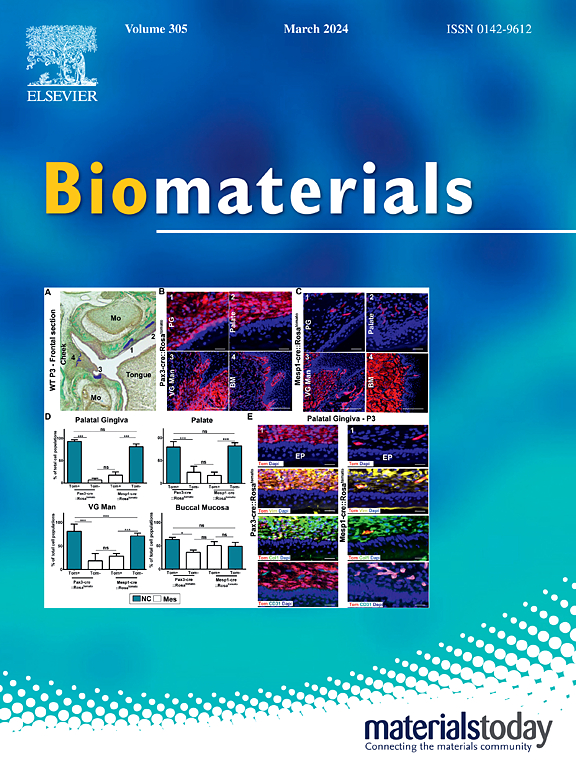Gene-engineered polypeptide hydrogels with on-demand oxygenation and ECM-cell interaction mimicry for diabetic wound healing
Abstract
The treatment of infected diabetic wounds remains a significant clinical challenge due to pathogen infection, excessive inflammation, and impaired angiogenesis with troubled extracellular matrix (ECM) - cell and cell - cell interaction. Herein, we prepared a Janus polypeptide-engineered hydrogel with programmable function driven by self-assembly of the same A domain. The hydrogel was composed of a V8-degradable AC10A layer loaded with hybrid phages (ABC) for precise bacterial inhibition and a PC10ARGD layer loaded with Mn-based mineralized erythrocyte (PEM) for continuous supply oxygen on demand. The results of laser speckle contrast imaging, photoacoustic imaging, and hyperspectral imaging demonstrated that the AC10A@BP-Ce6/PC10AR@EM hydrogel (ABC/PEM) accelerated the reconstruction of normal skin structure by breaking the oxygen diffusion barrier and supplying oxygen on demand to promote angiogenesis and functionalization. In addition, in vitro and in vivo experiment results showed that the ABC/PEM hydrogel can mimic positive ECM - cell interaction to inhibit the polarization of macrophage towards M1-type to slow down the inflammatory process by down-regulated yes-associated protein (YAP), and relieve the mechanical tension of fibroblasts and keratinocytes. Finally, the ABC/PEM hydrogel promotes a healing rate of 98.83?% on day 21 and results in the number of dermal appendages being eight times that of the negative group. This work presents an effective strategy for diabetes-related chronic infected wound management.





